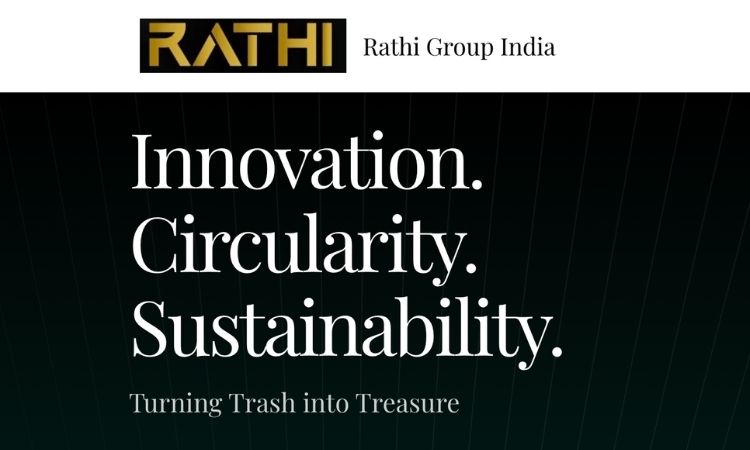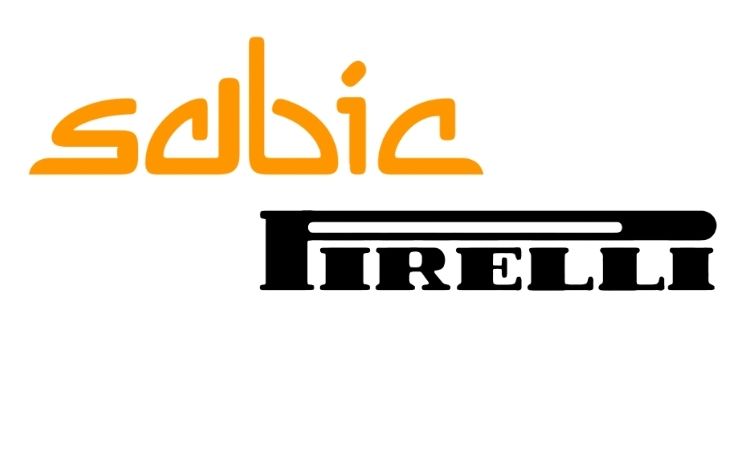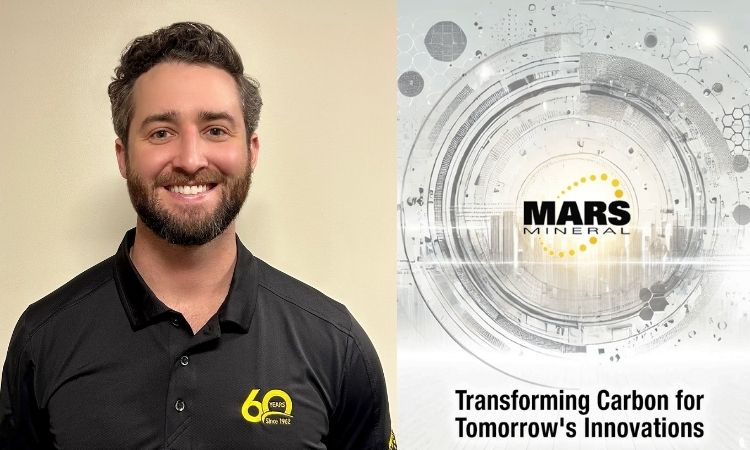Weibold Academy: Common Sustainability Certificates for the ELT Pyrolysis Industry
Weibold Academy article series discusses periodically the practical developments and scientific research findings in the end-of-life tire (ELT) recycling and pyrolysis industry.
This article is a review by Claus Lamer – the senior pyrolysis consultant at Weibold. One of the goals of this review is to give entrepreneurs in this industry, project initiators, investors and the public, a better insight into a rapidly growing circular economy. At the same time, this article series should also be a stimulus for discussion.
For the sake of completeness, we would like to emphasize that these articles are no legal advice from Weibold or the author. For legally binding statements, please refer to the responsible authorities and / or specialist lawyers.
Below we would like to give an overview of the most common certification schemes in the ELT chemical up-cycling (pyrolysis) industry and their essential differences, without claiming to be exhaustive (there are principally many sustainability certifications available besides ISCC, Ecoloop, C2C, EMAS, and ISO 14001).
Introduction
The 2009/28/EC directive, officially known as the "Directive on the promotion of the use of energy from renewable sources," is a significant European Union directive adopted on April 23, 2009. It has the primary goal of fostering the utilization of renewable energy sources, reducing greenhouse gas emissions within the European Union, and decreasing reliance on energy imports. Each member state is required to adhere to specific targets for the share of renewable energy in their overall energy consumption.
In 2018, the directive was revised and updated through the Renewable Energy Directive 2018 (2018/2001). It solidified the binding national targets for renewable energy in gross final energy consumption and established a unified framework for promoting energy from renewable sources. This framework includes the implementation of support schemes, guarantees of origin, and streamlined administrative procedures.
The directive's provisions encompass various administrative procedures, regulations, and codes pertaining to the promotion of renewable energy usage. Article 13 of the directive mandates that member states establish transparent, efficient, and cost-effective administrative procedures, regulations, and codes to ensure the consistent promotion of renewable energy. These measures aim to align with the directive's objectives, including greenhouse gas emission reduction and the advancement of cleaner transportation.
The Renewable Energy Directive (RED) and its subsequent amendments play a crucial role in shaping European Union energy policies by encouraging renewable energy adoption, reducing emissions, and enhancing energy security.
International Sustainability and Carbon Certification (ISCC)
ISCC (International Sustainability and Carbon Certification) is a globally applicable sustainability certification system for all sustainable feedstocks, including agricultural and forestry biomass, biogenic wastes and residues, circular materials, and renewables. The objectives of the ISCC system are to establish an international, practically viable, and transparent system for certifying biomass and bioenergy, contribute to a reduction in greenhouse gas emissions, promote sustainable use of land, promote traceability, protect natural biospheres, and ensure social sustainability.
The certification helps producers take responsibility and reduces the risk of harmful ventures, and it is a reliable method that helps customers recognize the difference between sustainable and non-sustainable biofuel offerings.
ISCC is a sustainability certification system for all feedstocks and markets, and it complies with the Renewable Energy Directive (RED) and the Fuel Quality Directive (FQD) of the European Commission. Once the certificate has been issued by the certification body, the company is allowed to purchase and sell ISCC certified sustainable material as well as to use the ISCC logo.
SCC EU and ISCC PLUS are two certification schemes offered by ISCC. ISCC EU is designed for the European market and is used to prove compliance with legal requirements for biofuels and bioliquids in the European Union and other important energy markets. It covers biofuels, biogas/biomethane, renewable fuels of non-biological origin, and recycled carbon fuels.
On the other hand, ISCC PLUS is a sustainability certification program for bio-based and circular (recycled) raw materials for all markets and sectors not regulated as biofuels or bioliquids. It covers all types of agricultural and forestry feedstocks, agricultural waste, and processing residues. ISCC PLUS certification addresses criteria such as good agricultural practices to protect soil, water, and air, safe working conditions, compliance with human, labour, and land rights, good management practices, continuous improvement initiatives, and compliance with local and national laws and regulations.
Both certification schemes are largely harmonized, and with only one audit, three certificates (including GHG) can be issued to supply all markets.
ISCC GHG certificate refers to the voluntary add-on "205-01" for GHG Emission Requirements under the ISCC Voluntary Add-ons. Under ISCC EU certification, GHG emission calculations are mandatory, while under ISCC PLUS, GHG emission calculations are voluntary and can be made by applying the add-on "205-01". The ISCC GHG add-on provides methodological requirements for GHG calculations and verifications along the supply chain.
Ecoloop Certification
The ecoloop certification program is for producers, recyclers, processors, and manufacturers of products made from waste-based feedstock. The certification aims to promote and increase high-level recycling and the use of waste-based feedstock. Companies seeking ecoloop certification must demonstrate the use of waste-based feedstock in their products and show compliance with certain environmental standards. The certification process involves an audit, consulting, and advisory services.
Ecoloop certification gives customers the assurance that the products they are purchasing are made from recycled materials and meet certain environmental standards. The certification program also demonstrates the joint responsibility of producers, recyclers, processors, and manufacturers of products to create a common understanding of the use and benefits of recycled materials. By promoting the use of waste-based feedstock, ecoloop certification helps to reduce waste and conserve natural resources, which is essential for building a sustainable and resilient society.
Cradle-to-Cradle Certification (c2c)
Cradle-to-Cradle certification is issued by the Cradle-to-Cradle Products Innovation Institute. It comprises a third-party program that evaluates and recognizes products for their environmental and social impacts based on William McDonough and Michael Braungart’s Cradle-to-Cradle approach. The certification is awarded based on four ascending levels of achievement, and it considers not only environmental factors but also social and economic elements.
The Cradle-to-Cradle certification attempts to measure the environmental and social sustainability of physical products in five categories: material health, material reutilization, renewable energy and carbon management, water stewardship, and social fairness. The certification helps ensure that products are safe, circular, and responsibly made, and it takes a comprehensive and holistic approach to sustainability. The Cradle-to-Cradle certification is used globally across industries by designers, brands, and manufacturers for designing and making products that enable a healthy, equitable, and sustainable future.
The criteria for a product to be Cradle-to-Cradle Certified® are based on five categories: Material Health, Material Reutilization, Renewable Energy Use, Water Stewardship, and Social Responsibility. The certification is awarded based on four ascending levels of achievement.
- The Material Health category assesses the safety of the product's ingredients and their impact on human and environmental health.
- The Material Reutilization category evaluates the product's ability to be recycled or biodegraded and its potential to become a resource for future products.
- The Renewable Energy Use category assesses the product's energy efficiency and the use of renewable energy sources in its production.
- The Water Stewardship category evaluates the product's impact on water resources and its ability to conserve water.
- The Social Responsibility category assesses the product's impact on social and economic factors, including labour practices, community engagement, and supply chain management.
The Cradle-to-Cradle Certified® certification is valid for two years, and after obtaining the certificate, the Cradle-to-Cradle Products Innovation Institute can support companies in optimizing their products in line with the certification criteria.
Differences between ISCC, ecoloop, and Cradle-to-Cradle certificate
ISCC, Cradle-to-Cradle (C2C), and Ecoloop are all sustainability certification systems that aim to promote environmentally responsible practices. However, there are some differences between the three certifications.
While all three certifications aim to promote sustainability,
- ISCC certification focuses on the sustainability and traceability of raw materials,
- Ecoloop certification focuses on the circularity and sustainability of products and materials, and
- Cradle-to-Cradle certification focuses on the design and manufacturing of products that are safe for human health and the environment.
ISCC Certification
- Focuses on the sustainability and traceability criteria of all types of agricultural and forestry raw materials, biogenic wastes, circular materials, and renewables.
- Addresses criteria such as good agricultural practices, safe working conditions, compliance with human and labour rights, and compliance with local and international laws and regulations.
- Verifies the existence of points of origin and requires the documentation of the list of all points of origin.
- Audits are conducted by auditors of Certification Bodies cooperating with ISCC.
Ecoloop Certification
- Focuses on the circularity and sustainability of products and materials.
- Addresses criteria such as the use of recycled and renewable materials, the reduction of waste and emissions, and the promotion of circular business models.
- Verifies the compliance of the product or material with the Ecoloop criteria.
- Audits are conducted by independent third-party assessors.
Cradle-to-Cradle Certification
- Focuses on the design and manufacturing of products that are safe for human health and the environment, and that can be reused or recycled.
- Addresses criteria such as material health, material reutilization, renewable energy and carbon management, water stewardship, and social fairness.
- Uses Environmental Material Credits (EMCs) to include product components that do not need to be assessed for material health.
- Audits are conducted by independent third-party assessors.
Eco-Management and Audit Scheme Certification (EMAS)
EMAS stands for Eco-Management and Audit Scheme, which is a voluntary environmental management instrument developed by the European Commission in 1993. The scheme enables organizations to assess, manage, and continuously improve their environmental performance.
EMAS is a premium instrument for environmental management because it has additional requirements for registered organizations, such as employee engagement, ensuring legal compliance, or the publication of an environmental statement. The scheme is globally applicable and open to all types of organizations, including public and private sectors. EMAS is based on the implementation of an Environmental Management System (EMS) that sets up procedures to assess and improve environmental performance. If organizations follow the demanding guidelines of the EMAS regulation, they can be EMAS-registered.
EMAS is known as the most credible and robust environmental management tool on the market and goes beyond the requirements of ISO 14001, the international standard for Environmental Management System, by adding several elements on top of the requirements of ISO 14001.
EMAS requires organizations to identify their environmental aspects that have a significant impact on the environment and to publish an annual environmental statement that must be validated by an environmental verifier. EMAS also requires employee engagement, legal compliance, and the publication of an environmental statement, which are not required by ISO 14001.
EMAS is issued by a public body, while ISO 14001 is a private norm. For this reason, public bodies are formally involved in the EMAS system. In summary, while both systems have similarities, EMAS is a more demanding and comprehensive environmental management system than ISO 14001.
EMAS Certificate in comparison with ISCC, ecoloop and Cradle-to-Cradle
The Eco-Management and Audit Scheme (EMAS) is a voluntary environmental management instrument developed by the European Commission in 1993.
EMAS enables organizations to assess, manage, and continuously improve their environmental performance. EMAS is globally applicable and open to all organizations that are willing to improve their environmental performance.
EMAS is different from ISCC, ecoloop, and Cradle-to-Cradle in the following ways
- Focuses on the environmental performance of organizations and their management systems.
- Addresses criteria such as legal compliance, employee engagement, and the publication of an environmental statement.
- Provides core indicators or performance indicators (KPIs) with which registered organizations can measure their environmental performance.
- Audits are conducted by accredited third-party auditors (public bodies are formally involved).
EMAS certification focuses on the environmental performance of organizations and their management systems, while ISCC, Ecoloop, and Cradle-to-Cradle certifications focus on the sustainability and traceability of raw materials and the design and manufacturing of sustainable products.
Summary
ELT chemical up-cycling companies that are certified by ISCC, Ecoloop, C2C, or EMAS can benefit in several ways.
- Demonstrating the companies' commitment to sustainability and environmental responsibility, which can enhance their reputation and brand image.
- Helping companies to comply with environmental regulations and standards, which can reduce the risk of legal and financial penalties.
- Improving the environmental performance, reducing the environmental impact, and conserving natural resources, which can lead to cost savings and increased efficiency.
- Helping companies to access new markets and customers that prioritize sustainability and environmental responsibility.
- Differentiating from competitors and gaining a competitive advantage in the market.
- Paving the way for unencumbered cross-border flow of materials in a circular supply chain.
Weibold is an international consulting company specializing exclusively in end-of-life tire recycling and pyrolysis. Since 1999, we have helped companies grow and build profitable businesses.









